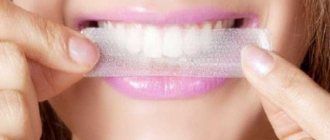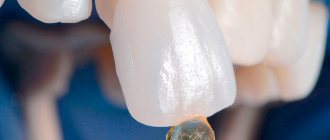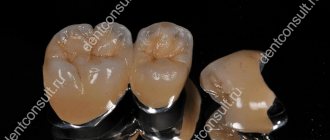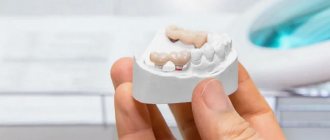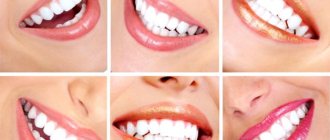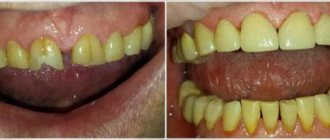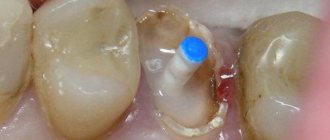Publication date: 03/18/2021
A smile is part of nonverbal communication that is understandable to anyone. Some emotions simply cannot be expressed without a smile. According to research by American scientists:
- 75% of respondents would not want to do business with sad people
- 58% think moody people are hiding something
- 70% would not consider making friends
- 55% would not start working with a gloomy person
With the help of a smile, we invite people to communicate, make friends, thank them, and apologize. A snow-white radiant smile is an indicator of health, beauty and self-confidence. Those with an attractive smile achieve great success not only in their personal lives, but also at work.
The most important component of a contagious smile is straight and white teeth. They are an indicator of health and success. A smile can be light, not exposing your teeth, but when you laugh, you definitely won’t be able to hide them. Therefore, people begin to care about the beauty of a smile in their youth.
Unfortunately, not all people have straight and snow-white teeth. Curvature may appear in childhood, and yellowness may even be an individual feature. Fortunately, dentistry now offers several ways to solve problems with a less-than-perfect smile. For example, veneers or lumineers are installed.
Veneers
Veneers are thin ceramic shells that are attached to the front teeth. To do this, the teeth are ground by 0.3 - 1 mm. Typically, veneers are used to correct not only the color, but also the shape and curvature of teeth. For example, if the teeth are too large or protrude too much forward, and also have interdental gaps.
Veneers are made from ceramics using digital technology. They have high strength, resistance to heat and various types of erosion. Their thickness is 0.3 - 0.6 mm. These veneers can be translucent or opaque.
The service life of veneers ranges from ten to fifteen years. They do not require special care.
Crowns
With the help of crowns, chewing and frontal teeth are restored when they are so damaged that installing a filling is no longer possible. Crowns differ in the type of material they are made from.
Metal-ceramic crowns
They have a frame made of precious metals or nickel, cobalt-chrome. The top of the frame is covered with several layers of ceramic composition. Such crowns are quite reliable, however, they are not entirely aesthetic. Due to the metal frame, the tooth may look darker. In addition, an allergic reaction to the metal may occur.
Metal-plastic crowns
In this case, the metal frame is covered with a plastic mass. This significantly reduces the cost of the design and makes it lightweight. It is worth keeping in mind that the service life of a plastic product is not long. In addition, the coating is susceptible to staining and has low strength. Metal-plastic is used as a temporary solution to the problem.
Metal-free crowns
A fairly durable, reliable, aesthetic way to restore teeth. Most often they are used for the frontal region, as they have a similar transparency to their teeth. They are hypoallergenic and have ideal compatibility with soft tissues.
Zirconium dioxide crowns
The most durable and cost-effective method of dental prosthetics. Crowns are made from zirconium dioxide and a layer of ceramic is applied to the base. Used to restore all types of teeth.
Veneer installation process
Veneers are made to order. Therefore, they perfectly follow the dentition and are not felt at all when worn. At the first visit, an impression of the patient’s teeth is made, it is decided how many teeth the prosthesis will be installed on, and its shade is determined.
To select the optimal color and shape of veneers that suit you, the doctor uses a computer design method. He takes a photo of a smiling face and uses modeling to determine the necessary parameters. You can imagine in advance how suitable the shade and shape of the veneers you have chosen will be.
To install veneers, teeth must be ground down. This is also done at the first appointment. Temporary veneers are then installed, as the wait for the original can be several weeks.
At the next appointment, the dentist removes the temporary veneers and tries on new ones. If they fit perfectly, he places them on special glue:
- A composite material is applied to the treated dentition, the shade of which is selected in advance;
- veneers are fixed and excess material is removed;
- If necessary, grinding is carried out according to the bite.
Pros and cons of installing veneers
Veneers can eliminate dental defects, however, they have their positive and negative sides.
The advantages include the following:
- With the help of veneers, you can correct quite severe deficiencies: crooked teeth, enlarged interdental spaces, severe chips.
- correction of the color of teeth if they are pigmented or have an unattractive yellow tint from nature.
The disadvantages of using veneers include grinding off the upper layers of enamel, which entails increased tooth sensitivity. In addition, installing veneers is an irreversible process. After the expiration of the period of use, it is necessary to order new implants.
How long will you have to wait for the result?
Braces exert mechanical pressure on the teeth, due to which they move in the direction specified by the doctor and are gradually aligned. However, this process is not quick, and the patient will have to be patient, because treatment can take more than one year. Especially in those patients who get braces at the age of 30 or later, when the bone structure of the maxillofacial apparatus is already fully formed. Also, do not forget that after treatment with orthodontic appliances you will definitely have to wear retainers, which will help consolidate the result and prevent teeth from moving in the opposite direction. Retainers will need to be worn several times longer than the braces themselves. Sometimes they have to be worn periodically throughout the rest of their lives if the bite has been severely disturbed.
Getting a beautiful smile with veneers would seem to be much faster and easier. You won't have to wait long. Here you just need to spend time waiting for the onlays to be made (in the laboratory this process can take from 1 week to a month), plus make several visits to the dentist and spend several hours in the dental chair. However, here too, patients are sometimes disappointed with the results.
“I wear ceramic veneers, and I’m very pleased that I managed to do without braces. But my situation was not complicated: a pair of front teeth were slightly crooked. By the way, I installed veneers despite negative examples and negative experiences of my friends. I have a friend whose doctor also put on onlays for a minor defect, but they quickly became unusable, and her teeth looked very unpresentable under them. The friend herself later really regretted that she refused treatment with braces!”
Venera, review from correspondence on woman.ru
Contraindications for installing veneers
There are not many contraindications to installing veneers. One of them is installation up to sixteen to eighteen years of age. At this age, the formation of the bite, enamel and teeth is still underway.
Another contraindication is teeth that are too damaged. In this case, there is simply no need to attach a microprosthesis. Here you will have to install an all-ceramic crown. However, if the teeth have been damaged by cervical caries and then restored and filled with aesthetic restoration, then they can be covered with veneers.
Each case is individual and the question of what to choose for correction: veneers or lumineers is decided by the doctor together with the patient.
Dentist works like an artist
If someone thinks that teeth are simply gray, white and “ivory-colored”, then they are very mistaken. Teeth are multi-colored and Enamel Plus has special cards for correct color selection.
The Enamel Plus set of materials is similar to a palette and makes it possible to create a tooth with any color characteristics.
The set contains 9 dentin colors, including for whitened teeth. Dentin is not as transparent as enamel and has a more pronounced color.
For materials imitating enamel, it is much more important to select the required transparency, so the kit includes three types of enamel: transparent (for young teeth), medium and dense. There are also special types of enamel for chewing teeth, which are more durable and less transparent, which is characteristic of natural lateral teeth. Another type of enamel to give the tooth characteristic individual features: spots, stripes and imitation of cracks.
Paints and special brushes have been developed for working with Enamel Plus materials, which gives the doctor enormous scope for creativity. Layer by layer, step by step, the tooth is created.
Lumineers and their features
Lumineers are thin plate-shaped plates 0.2 to 0.3 mm thick made of ceramic that are fixed to the front teeth. The wear life is more than twenty years.
Lumineers are used to correct minor dental defects. Such as: pigmentation, small chips, unattractive shade.
Any implants are installed only on healthy teeth. Therefore, if caries is present, it must be cured.
Lumineers can be installed in just two visits to the dentist.
- At the first appointment, the doctor performs an examination, takes dental impressions and determines the shade of future implants. Sends the impression to an American laboratory, where lumineers are made using the patented Cerinate technology.
- At the second appointment, the dentist performs a professional teeth cleaning. Then the finished lumineers are tried on and installed. The doctor applies etching and primer to the enamel. The inside of the lumineer is coated with a fluoride-enriched composition that strengthens dentin and makes the lumineer resistant to high acidity. The procedure is performed under multiple magnification using a dental microscope. This guarantees the highest precision of implantation. After placing the lumineers on the teeth, the composite solution is dried using a curing lamp. Then the excess cement is removed. The procedure for installing lumineers is complete.
How do composite light-curing materials work?
Enamel Plus belongs to the group of composite materials and, like others, it uses two main components - an organic matrix and an inorganic filler. The organic matrix of all materials is approximately the same - it is a monomer, which becomes a polymer under the influence of radiation, as well as catalysts, dyes and activators.
The main differences between restoration materials are determined by the choice of inorganic filler. Typical “fillers” are quartz, various types of glass, zirconium, etc. The particles vary in size, shape and can be mixed in different proportions.
For a long time, manufacturers of materials for direct dental restoration have been faced with a dilemma: to make the material beautiful or durable. The fact is that the more inorganic filler, the stronger the material, but the less transparent it is, the less polished it is and the faster it loses its aesthetic properties. This occurs due to the loss of relatively large particles of filler from the surface of the filling; at the microscopic level, this looks like “pores”.
In the early 2000s, nanocomposite materials appeared, which included very small filler particles (0.1-100 nanomicrons in size). This made the restoration materials more uniform, transparent and easy to polish. At the same time, aesthetic qualities were achieved without compromising the strength of the material.
Pros and cons of installing lumineers
Lumineers correct the color of teeth and correct minor external defects. For example, small chips and slight curvature. However, they cannot sustain serious damage, and in this case it is better to seek installation of veneers.
Another important disadvantage is the price of lumineers. Due to the fact that they will be manufactured using patented technology only in specialized American laboratories, the cost of lumineers is 2-3 times higher than the price of veneers.
However, the advantages of lumineers are undeniable. The most important thing is that there is no need to grind the teeth. This way you can always remove microprostheses and return to their original state.
An important feature of lumineers is their color. They have a matte surface. This makes the smile snow-white and “Hollywood”, however, it does not look entirely natural.
Also, in some cases, if the patient has large teeth, lumineers will add even more volume.
Lumineers or veneers - making a comparison
The difference between veneers and lumineers is as follows:
- veneers are thicker, so you need to grind down the top layer of the tooth
- Lumineers last 10-15 years longer
- veneers look more natural
- Lumineers are much more expensive
Depending on the goals and budget, the patient makes a choice towards one type of prosthetics or another.
In addition, over the years, a small gap may form at the junction of the gum and the veneer attachment, where food debris will accumulate. This can cause caries. Treating caries on teeth with installed veneers is much more difficult and expensive.
What is more expensive: veneers or lumineers?
A short table of price comparisons in Moscow.
| Name of dentistry | Price per tooth, rub. |
| Dental Implantology Center |
|
| Smile studio |
|
| Novadent |
|
| Dentistry "Beauty and Health" |
|
| Smile-at-Once |
|
Questions and answers
Is it true that empress veneers installed in your clinics do not require grinding or removal of enamel?
Good afternoon Please tell me, is it really true that the empress veneers installed in your clinics do not require grinding and removal of enamel? In connection with what?
Hello! To install Empress veneers, grinding of the enamel is required to better attach the veneer and give the teeth an anatomical shape, but the grinding is not as deep as when installing other types of veneers, since Empress veneers are ultra-thin plates made of a unique high-strength material. You can find out more detailed information about the properties of Empress veneers and the features of their installation during a free consultation with our orthopedists. You can make an appointment by calling + 7 (495) 789-42-02. Sincerely, Patient Support Center SIMPLADENT++8 800 333-53-41
Is it possible to hide or disguise a crooked tooth with a veneer?
Good afternoon Tell me, is it possible to hide/disguise it with a veneer if a tooth is crooked? On my right, the fang goes inside the jaw. I don’t want to get braces, and I can’t afford the money for mouthguards. It seems like the solution is veneers, but I need your preliminary advice.
Hello! Theoretically, such defects can be corrected by installing veneers. However, only a doctor can answer you for sure based on the results of the examination. Come to our specialists for a free consultation, the doctor will explain to you all the details of veneer prosthetics and write out a treatment plan indicating the cost. Our clinic uses highly aesthetic Empress veneers made from ultra-strong ceramics. For more details and to sign up for a free consultation, please call +. Sincerely, Patient Support Center SIMPLADENT++8 800 333-53-41
Other questions
Other jobs
Intraoral scanner ensures optical accuracy of aligners
To make the aligners, we used an intraoral scanner, which was used to take optical impressions. That is, the camera takes many pictures, which are stitched into a 3D image in a special program. And this 3D image is sent to the laboratory, bypassing transport and time losses, bypassing shrinkage and all kinds of force majeure circumstances - hypothermia of the impression masses. Accordingly, we get a more accurate, more predictable result.
Anna
: The teeth scanning took place there for 15 minutes. And a week later, at a follow-up appointment, I was able to immediately see how my teeth would move.
Doctor Arkashov
: That is, by the time we received the result from the laboratory with the final treatment plan, we had not yet done anything to our patient. The result that we get after aligners will be appreciated by the patient. And we, as a rule, allow you to look at the result of orthodontic treatment. And many patients are satisfied with it.
Examples of work “Before” and “After”
Restoring aesthetics with lumineers
Case: the patient complained of unsatisfactory aesthetics of the anterior teeth (yellow enamel, curvature).
Aesthetic restoration of anterior teeth - lumineers
Case: the patient complained about the unsatisfactory aesthetics of his smile (he was not satisfied with the color and shape of the teeth), since the teeth were not affected by caries, the curvature was small, the patient chose the most non-traumatic restoration option - installing lumineers without grinding and depulping the teeth.


